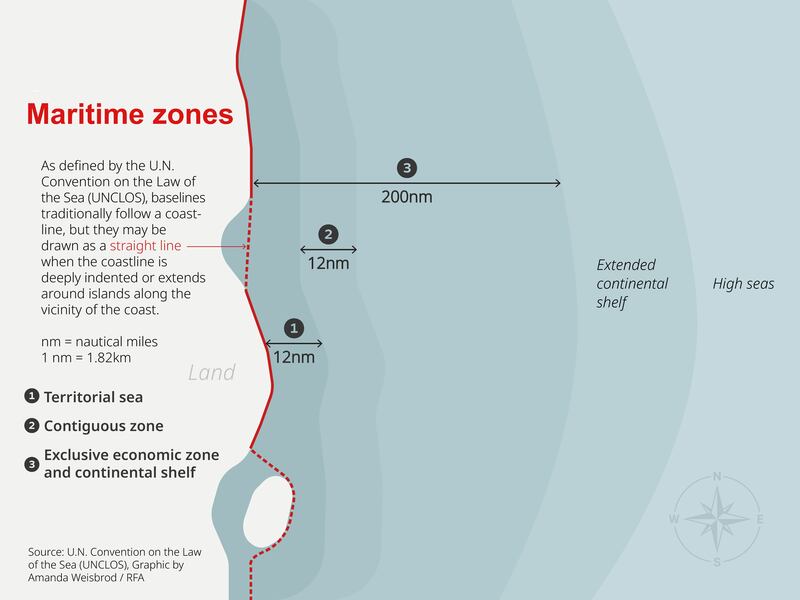Updated July 18, 2024, 10:48 a.m. ET.
Vietnam has submitted a claim to the U.N. over an extended continental shelf in the central area of the South China Sea, a month after a similar move by the Philippines.
The Vietnamese foreign ministry said in a statement on Wednesday that under the U.N. Convention on the Law of the Sea, or UNCLOS, Vietnam had full "legal and scientific bases" to assert its entitlement to the stretch of seabed that extends beyond 200 nautical miles (370 km) from its shore, as well as to exclusive rights to explore and exploit the natural resources in the area.
The South China Sea is believed to be rich in marine resources and oil deposits.
RELATED STORIES
[ Philippines ‘ready’ to discuss continental shelf with VietnamOpens in new window ]
[ Vietnam asks Philippines to respect its interests and consult on sea boundaryOpens in new window ]
[ Philippines seeks UN validation to extend continental shelf limitsOpens in new window ]
On June 14, the Philippines filed its own submission for an extended continental shelf in the West Palawan region of the South China Sea, which could overlap with Vietnam’s and Malaysia’s claims.
Vietnam did not protest outright to the Philippine filing but instead said that while coastal states had the right to determine their outer continental shelf boundaries under UNCLOS, when submitting their claims “they must respect the legal and legitimate rights and interests of other relevant coastal nations with opposite or adjacent coasts.”
Afterward, the Philippine government said it was willing to hold talks with Vietnam to “achieve a mutually beneficial solution to South China Sea issues.”
On Thursday, in response to Vietnam’s submission, the Philippines said it reaffirmed its claim to an extended continental shelf in the Western Palawan region.
“Nevertheless, we acknowledge Vietnam’s right, as a coastal state like the Philippines, to submit information to establish the outer limits of their continental shelf beyond 200 nautical miles ... as provided for under UNCLOS,” the Philippine foreign ministry said in a statement.
“We are ready to engage Vietnam on possible ways forward that would help achieve a mutually beneficial solution to South China Sea issues, in accordance with international law, particularly UNCLOS.”

Meanwhile, China rejected Vietnam’s extended continental shelf claim.
"We firmly oppose it and have made serious protests to [Vietnam]," said Lin Jian, Beijing's foreign ministry spokesman.
He said that Hanoi’s claim violated Beijing’s territorial sovereignty and maritime rights, a bilateral agreement between the two nations on handling sea-related issues, a regional code of conduct on the South China Sea and international law.
“Such submissions do not have any practical effect but will only accentuate differences and exacerbate frictions, which will in no way help resolve the disputes. China will remain committed to properly handling disputes in the South China Sea through dialogue and consultation with relevant parties,” Lin said.
China, which claims most of the South China Sea despite regional countries’ objections, also protested against the Philippines’ earlier submission for an extended continental shelf.
This is Vietnam’s third submission on an extended continental shelf in the South China Sea, which it calls the East Sea.
In May 2009, Vietnam filed a separate submission for the north area and a joint submission with Malaysia for the southern part of the South China Sea.
The Vietnamese foreign ministry said its latest submission was to ensure its “lawful rights to its extended continental shelf” in the central portion of the South China Sea, but it stood ready and committed to “resolve and manage all disputes and differences with relevant coastal states by peaceful means.”
Edited by Mike Firn.
This story has been updated with comments from China and the Philippines.
